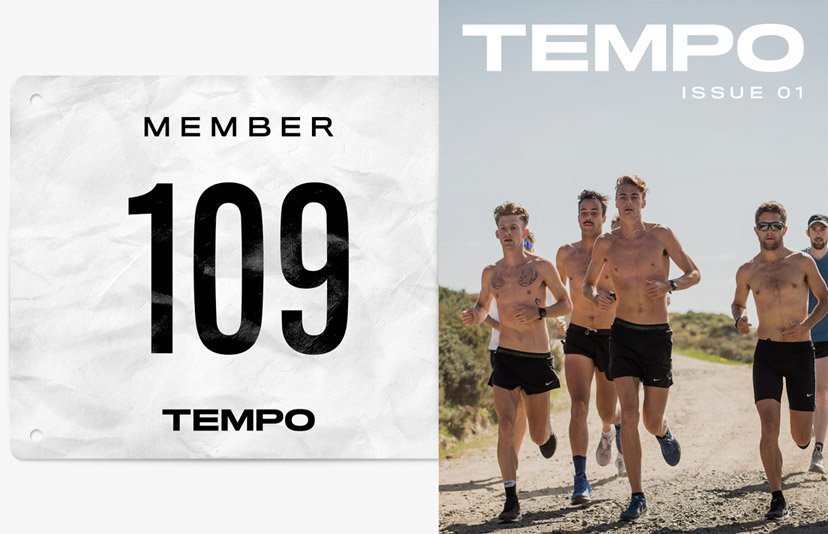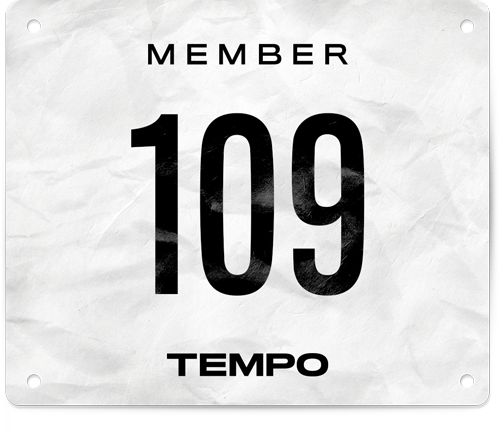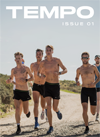Culture
We need to be better
Listening to two Australian athletes
What does racism look like in Australia? As a middle-class white male born to two middle-class white parents, I am aware that I can't give a meaningful answer to this question - and that’s ok. To be honest, it’s the best trade I’ll ever get in my life. The fact that you’re here reading this tells me that hopefully, you want to learn more about race issues in Australia, and that you’re open to the idea that there are things you don’t know. As a white male who has enjoyed the benefits of a world class education, I’ve been encouraged all my life to think, to have opinions, and to voice them.
Space is made for me to have my say - for everybody like me to have our say. So it can be difficult to accept that when it comes to racism, and the way BIPOC are treated in Australia, I don’t get an opinion. The same way that I’ll never know what it’s like to be a female jogger running through moonlit parks in the early hours scared for my safety, and I can’t tell the LGBTIQ communities how to feel in certain situations.
I don’t get an opinion, but I do get the opportunity to listen, to learn, and to try and understand a little bit of what some people endure. I was fortunate enough to sit down with Morgan Mitchell and Nana Owusu-Afriyie for a wide ranging conversation about their experiences as BIPOC in Australia.
Nana Owusu-Afriyie was born in Melbourne to parents of Ghanian descent. She went to Wesley College, and studies Nutrition at Deakin University - oh, she also represents Australia on the world stage as a sprinter. Nana explained to me that we still don’t have an environment in Australia where racist behaviour can be called out or where we can have open conversations about what’s hurtful, which can cause the BIPOC community to bottle up the way they feel and suffer in silence - which in a way, only sustains the commentary.
“If I do bring up comments that someone says or how it makes me feel, often it can be turned back on me. The other person will say ‘that’s not what I meant, so why would you take it that way?’. But you can’t decide how I feel about something you’ve said.”
“Often the little comments are the worst ones. They think it’s just one little comment, but they don’t realise that we go home and think about those afterwards.”
Nana Owusu-Afriyie
“Sometimes we turn it back on ourselves. Sometimes I think I’m in the wrong for taking a comment as hurtful, because that person is my friend, why would they say those things about me.”
This is a great example of the problem. We don’t get to tell people how to feel or how to act when we can never experience the things they do. We don’t get to suppress their voice, or to tell them that their feelings aren’t valid. If the women in our lives - our mothers, our sisters, our girlfriends, our wives, felt they had been harassed at work or at school, I know we wouldn’t be saying to them ‘hey, don’t worry about it’ or ‘just try and ignore it’.
I went into this conversation expecting to hear about the big obvious acts of racism, be they name calling or people waving signs. What I didn’t expect to hear about were the uneducated, casual comments from peers.
“One of the most common things I get, being an athlete, is ‘oh, you’re black so you’ll be fast’, or ‘of course you’re going to win’. It’s not the work I put in, it’s that apparently I’m naturally talented because I was blessed to be a black athlete.”
“One of the worst things to hear, probably the worst, is ‘oh, you’re quite pretty for a black girl’. Why can’t I just be pretty? Why does my colour have to even be part of that sentence?”
Nana Owusu-Afriyie
“Those comments are things I go home and think about. I still think about things people said to me in Year 9. Comments can last a lifetime. I’ve had thousands of things happen in my life, but the fact that those memories of hurtful things can still be triggered, that’s the thing people don’t realise.”
Morgan Mitchell has spent most of her life in the western suburbs of Melbourne, and is the child of an African American father and a white mother. Morgan has represented Australia at the highest level, the Olympic Games. For her, racism has led to confusion around identity. In some circles, she’s made to feel like she isn’t ‘black enough’, or that she’s not involved in the fight for equality because she’s a famous athlete.
"My partner, Devon, is multiracial and it is something we talk about. He identifies as black, but I feel like I don’t really get the choice - people pick for me in different situations. People think I don’t have to worry about race because I’m successful.”
Morgan says that even when she is pushed to the front and given the spotlight, it leads to backlash.
“People use my colour to make themselves feel better. I remember back in 2016 there was a lot of commentary in the sport about me being the token black girl - ‘oh, she’s the black girl, that’s why she gets used in the media’.
It’s a double standard - I get torn down in that situation because apparently my skin colour is an advantage, but then I go to a modelling job and I get excluded from parts of it or I get less attention than the white models, because of my skin colour. So it feels like in one situation you perceive my skin colour as an advantage - so you hate me for it, then in the next situation you think my skin colour is unattractive - so you hate me for that too.”
So, what now? Young people appear to have taken up the fight with a new energy - the enthusiasm of the youth is on full display in major cities around the world, and Morgan and Nana know they have a role to play.
Morgan is unapologetic, “it’s easier to be silent because it's like headbutting a brick wall. But we have the chance now to change the narrative and to fight. We can no longer excuse the silent racism - I don’t care if it makes you uncomfortable, it’s made me upset my whole life.”
For Nana, showing up at the recent BLM protests in Melbourne was important. It’s her opportunity to be part of the change, to be part of the generation of Australians that finally says ‘enough is enough’.
“I felt I needed to go to the protest because I wanted to be part of a movement that will affect me for the rest of my life."
We all know that we need more than just protesting - protesting is great, but we have to do more. We need better representation across the board, so that kids don’t see BIPOC as lesser in any way. I ask Morgan where she thinks this influence could come from. “One I look at is Women’s Health. Look at all their front covers all the way back to 2018. There is no diversity, it’s mostly blondes and all white women, and a lot of them are just influencers. We’ve got amazing athletes from all different backgrounds in Australia; get Elizabeth Cambage or Catriona Bisset or someone on the cover.”
“It’s easier to be silent because it's like headbutting a brick wall. But we have the chance now to change the narrative and to fight. We can no longer excuse the silent racism - I don’t care if it makes you uncomfortable, it’s made me upset my whole life.”
Morgan Mitchell
I definitely had my preconceptions shattered when I sat down with Morgan and Nana. I went into the conversation thinking racism was mostly generational - I assumed that younger Australians were different and more educated than those before us, and that as each year passes, our people would have to deal with less and less racism. I also thought racism was obvious; that it was the Pauline Hanson’s of the world or the blatant displays of bias and hate.
But most often, it’s not that at all. It’s the subtle microagression. And it comes from young people. Most of the examples and stories I heard from Nana and Morgan are experiences with people their own age. There’s a need for education, and in recent days and weeks we’ve seen a litany of resources being shared to help people understand what racism looks like (some handy links shared at the bottom of this article). It’s not enough to say to yourself ‘I’m not racist’ or ‘I would never say anything racist’ if you aren’t educated on what racism looks and sounds like.
I don’t have all the answers. I still have a lot to learn, like I suspect most of us do. My hope is that you were able to approach this article with humility, and that after reading it you have a new understanding, or maybe just a reminder, that just because you don’t intend for a comment or an action to be racist, doesn’t mean it isn’t.
Editor's Note: Below is a (short) list of links that you may find useful in exploring this topic on a deeper level. The below YouTube clip is a 3 minute monologue from Meyne Wyatt and it's pretty incredible.
Talking to kids about race - The Conversation
Walking Together - Australian Broadcasting Corporation
End indigenous deaths in custody - Australian Human Rights Commission


